Nigeria-based SustyVibes are taking a comprehensive approach to Climate action. As well as acting on the ground to fix natural ecosystems and update waste management networks, SustyVibes are improving the perception of environmental action through improving the branding and awareness of Climate among young people. Their activities integrate with dozens of existing organisations, creating a platform for change in a country where visibility of biodiversity loss is low and access to solutions limited. See The Eco-anxiety in Africa Project (TEAP) - one nuanced approach to understanding the psychology behind human-induced climate change.
In this interview, TEAP Project Manager Ayomide Olude outlines the operations and approach of SustyVibes, signposting case study projects and methods.
SustyVibes has been going for over seven years now. How would you summarise the evolution of Climate and environmental awareness in Nigeria over this period?
In the last seven years, Nigeria has experienced a significant increase in Climate and Environmental awareness. This rise is largely due to the dedicated efforts of organisations like SustyVibes, which focus on promoting Sustainability and Climate Action. These organisations have implemented various initiatives, such as educational programs, community outreach, and street campaigns, to effectively raise awareness and educate the public about the importance of environmental protection.
Consequently, there has been a noticeable increase in the number of individuals in Nigeria actively participating in initiatives to combat climate change and adopt sustainable practices in their daily lives. This shift towards a heightened environmental consciousness is a promising development that signals a brighter future for both Nigeria and the planet as a whole
How is SustyVibes involved in waste management? What operations do you have in recycling, reducing landfill waste and coordinating with waste pickers?
Circularity is a key focus area for us as we continually challenge the narrative of litter culture and pollution in Nigeria through advocacy and action. Our flagship projects include the Susty Marshalls project, the Eunice Amoka-Bankole Street Dreams phase 2 project, Street Conferences and the Susty Schools projects.
Our Street Conferences use a double-pronged approach which combines advocacy and environmental sanitation to combat litter culture and foster a transition to sustainable living. Through this project, we have engaged thousands of Nigerians in 40 communities, increasing awareness of and capacity for environmental protection and climate action. We also partner with recognised waste management bodies such as State Management Waste Agencies, the Association of Waste Pickers and Recycling Organizations across Nigeria to aid proper waste disposal and promote recycling in local communities.
Similarly, we champion environmental protection via our Susty Schools projects where we train school children in both primary and secondary schools across Nigeria on eco-friendly living. We have donated recycling bins and organised several upcycling sessions aimed at promoting the culture of recycling in these host schools.
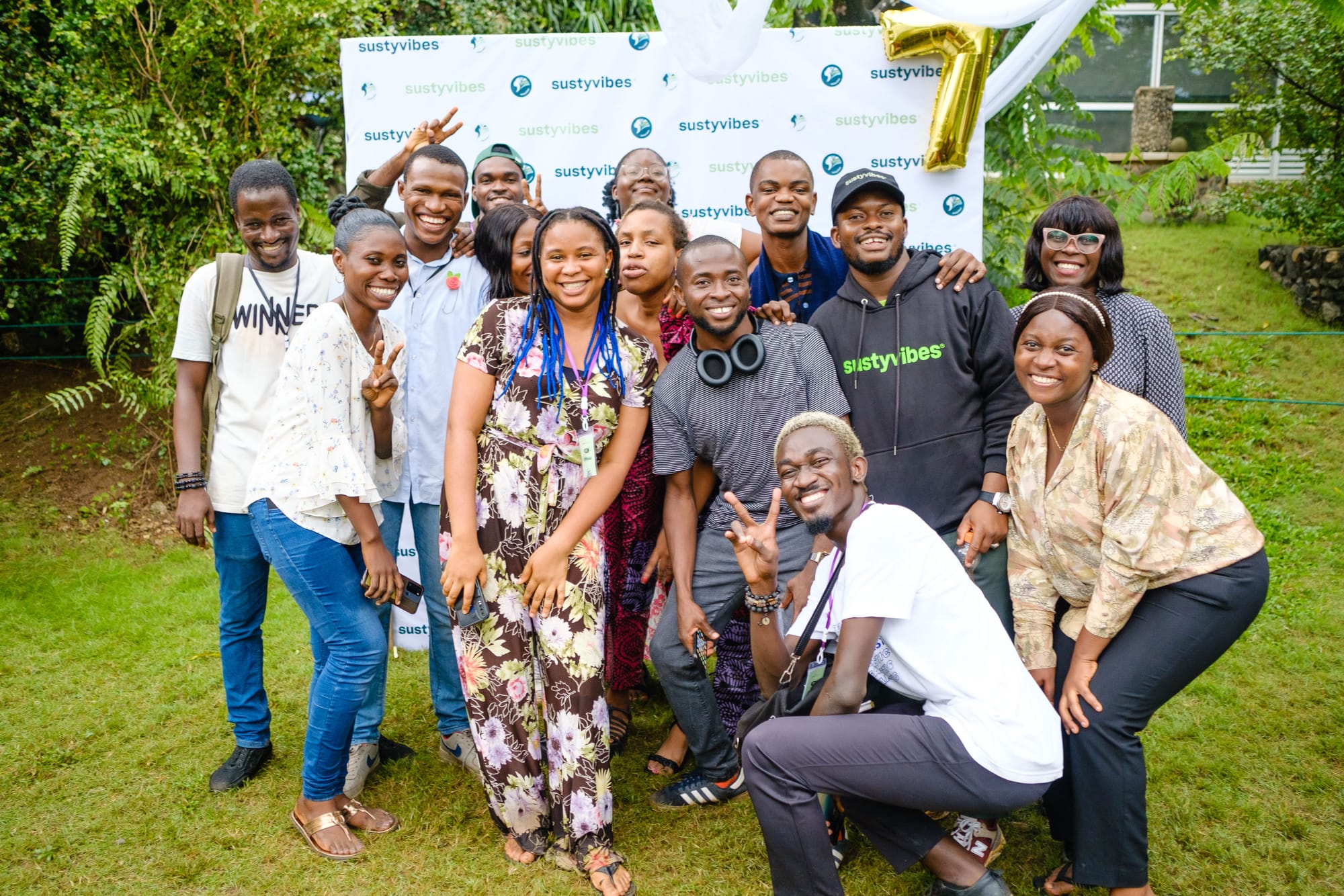
In 2022, we launched the Susty Marshalls Project which was funded by the World Economic Forum under the Global Action Plastic Partnership. This project was aimed at changing the narrative around informal waste pickers in Nigeria by supporting their welfare, restoring their dignity and elevating their status as integral parts of the circular economy chain in Nigeria. In the
first phase of this project, we provided health and safety training, personal protective equipment, health diagnostic checks and health insurance for 500 waste pickers in Lagos, Nigeria. To deepen our impact, we implemented the Susty Marshalls Phase 2 Project, engaging relevant stakeholders at the policy level in developing policies and strategies for the formalisation of
informal waste picking in Nigeria.
Finally, through the Eunice Amoka-Bankole Street Dreams Phase 2 Project, we combat single-use plastic litter and throw-away culture in Nigeria. In 2023, with the support of the Ashoka-UPS Accelerator Impact Fund, we partnered with Durian Nigeria to train 55 rural women and girls in Ondo State on waste-to-wealth upcycling skills. This involved converting single-use plastics into sellable items such as bags, mats and purses. Additionally, we constructed the Eunice Amoka-Bankole Street Dreams Project Upcycling and Weaving Training Center, equipped with materials for continuous use by community women and for future upcycling workshops.
What does a city like Lagos need to do to tackle its waste problems?
In order to effectively address the waste management challenges in Lagos state, it is imperative to focus on enhancing waste collection, transportation, and disposal infrastructures. This can be achieved by investing in modern technologies and equipment to streamline the process and ensure efficient waste removal. Additionally, promoting and supporting businesses that implement waste-reduction practices can significantly contribute to minimising the amount of waste generated in the first place.
Further, formalising and providing support to waste pickers cooperatives across the state can help in creating sustainable livelihoods for these individuals while also improving waste management efforts. By recognising the valuable role that wastes pickers play in the recycling chain, it is possible to establish a more organised and efficient system for waste collection and segregation.
Moreover, intensifying public education and awareness campaigns about proper waste management practices is crucial in changing behaviours and attitudes towards waste. By educating the public on the importance of reducing, reusing, and recycling waste, it is possible to foster a culture of sustainability and environmental consciousness among the residents of Lagos state. Overall, a multi-faceted approach that combines infrastructure improvements, business incentives, support for waste pickers, and public education is essential in effectively tackling the waste challenges faced by Lagos state.
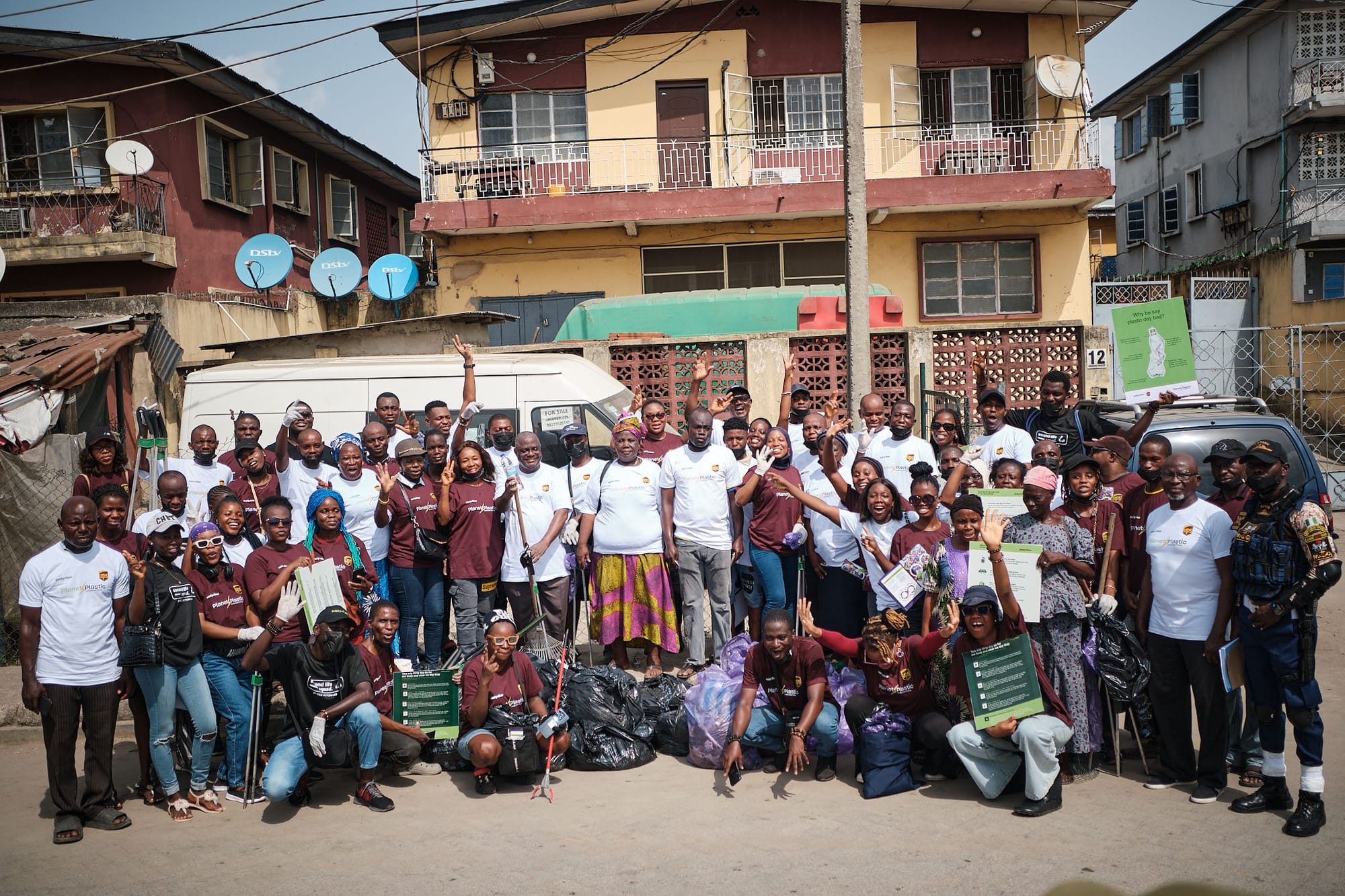
What's the current appreciation of biodiversity in Nigeria? Does awareness different between Lagos and rural areas of the country?
Biodiversity conservation in Nigeria is severely undermined by a lack of awareness on the topic (over 70% of Nigerians have a low level of understanding of biodiversity concepts). Awareness levels differ across the various socio-economic strata of the country, with increased knowledge of and commitment to biodiversity conservation visible in urban areas such as Lagos state compared to rural areas.
This is attributable to the availability of greater access to information and resources supporting conservation activities, a phenomenon less prevalent in rural areas across the nation.
Over the years, there has been an increased commitment from the Lagos State Government, led by the state Ministry of Environment, to Biodiversity conservation and awareness through campaigns and partnerships with conservation organisations in the state. Lagos is also home to the founding conservation organisations in Nigeria like the Nigerian Conservation Foundation (NCF), Lekki Urban Forest and Animal Sanctuary Initiative (LUFASI) and research institutions such as the TETFUND Centre for Excellence in Biodiversity Conservation and Ecosystem Management at the University of Lagos. The presence of these organisations has contributed to the increased awareness of the importance of biodiversity conservation via workshops, webinars, conferences, research projects, etc. As rural regions lag behind in these indices, the need for targeted and localised opportunities for improving biodiversity education and access can not be overemphasised.
Recognising this gap, we designed and implemented the Bioverse NG project aimed at connecting young Nigerians to nature via a double-pronged approach to climate action and biodiversity protection. The seven-month project consisted of a six-week virtual workshop educating 958 Nigerian youth on biodiversity and climate change linkages; six regional dialogues across Nigeria’s geopolitical zones converging 200 youth and biodiversity stakeholders to discuss the intersections of trending biodiversity challenges and youth inclusion in their local context; internship opportunities to seven participants at biodiversity focused
organisation in Nigeria, and a national conference to celebrate the project impact and convene project stakeholders for a robust dialogue on biodiversity.
The project increased biodiversity consciousness among young Nigerians across the country, improving their knowledge of and fostering meaningful youth participation in biodiversity management in Nigeria, thereby empowering them to become informed advocates of environmental stewardship. The project further reinforced our belief in enhancing youth and indigenous capacity as a crucial investment needed to protect Nigeria’s rich biodiversity and reverse the alarming trend of biodiversity loss in Nigeria.
SustyVibes had planted over 5,000 trees by the end of 2021. What is the latest progress on tree planting and how would you like to see it developed?
From November 2020 to April 2021, the Communitrees project planted 5000 indigenous seedlings in communities across Lagos and Abuja. Additionally, our approach focused on community ownership and included advocacy sensitisation on the concept of tree planting as a successful climate mitigation project.
Since 2021, our tree planting campaign in Nigeria has focused on raising awareness on the crucial role of tree planting in reversing ecosystem degradation and biodiversity loss; providing local solutions in adapting to the impacts of a changing climate and enhancing mental wellbeing and community interactions.
Looking ahead, we welcome exciting opportunities for partnership with government, businesses, and organisations across Nigeria, to expand our reach and impact. We are also committed to ensuring that we populate our communities with a diverse array of native tree species which will enhance our biodiversity and address our local environmental challenges. We look forward to the doubling impact of our tree planting efforts, and we hope to bring as many people on board to promote environmental stewardship in Nigeria.
How can we expect SustyVibes to develop during 2024 and into 2025? What milestones do you have?
Key milestones for the development of SustyVibes in 2024 and 2025 include expanding research on climate change and mental health in Africa, with a specific focus on raising awareness about climate-induced emotions. Additionally, there are plans to organise a climate and faith conference to bridge the gap in climate education by incorporating climate education within various religious groups. The aim is to extend the reach of SustyVibes to at least four African countries, the United Kingdom, and the United States. Emphasis will be placed on impactful storytelling that effectively conveys the importance of sustainability. Furthermore,
efforts will be made to strengthen the volunteer base by attracting more environmentally passionate youth. SustyVibes also aims to establish additional partnerships globally and initiate projects that highlight the urgent need for a more sustainable planet.


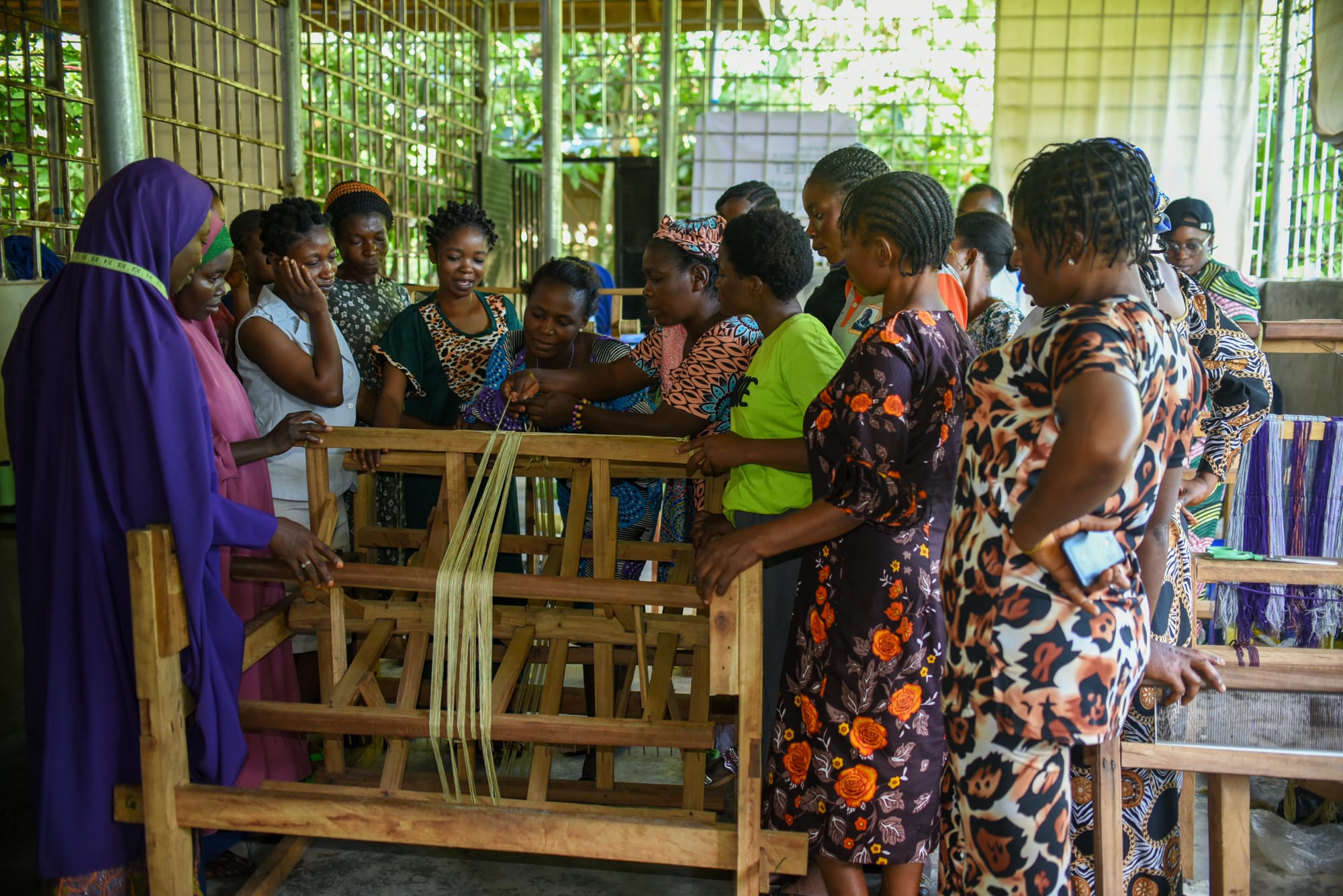
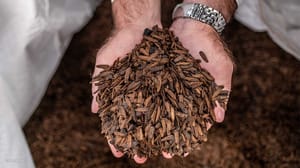
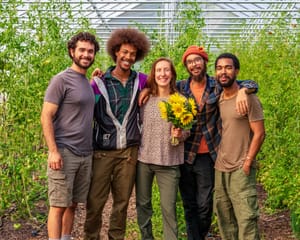

Member discussion